January 13th History Lesson
1794 – President George Washington approved a measure adding two stars and two stripes to the American flag, following the admission of Vermont (March 4, 1791) and Kentucky (June 1, 1792) to the Union.
1840 – The Steamship Lexington, midway through its voyage from New York City to Stonington, Connecticut, caught fire when the casing around the ship’s smokestack ignited nearly 150 bales of cotton that were stored nearby.
The ships’ overcrowded lifeboats were sunk almost immediately after their launch, leaving almost all of the ship’s passengers and crew to drown in the freezing water, with rescue attempts impossible due to the rough water and lack of visibility. Of the estimated 143 people on board the Lexington, only four survived.
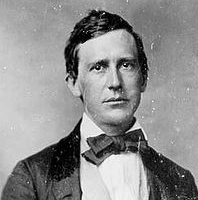
1864 – Stephen Foster, known as the ‘Father of American music’ (‘Oh! Susanna’, ‘Camptown Races’, ‘My Old Kentucky Home’, ‘Beautiful Dreamer’ and ‘Old Folks At Home {Swanee River}’) died destitute in a New York City hospital.
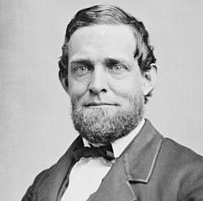
1885 – Schuyler Colfax, Jr., founder of the Independent Order of Odd Fellows, a U.S. Representative from Indiana, Speaker of The House of Representatives, and the 17th Vice President of the United States (under Ulysses Grant), died of a heart attack at the age of 61.
To date, he is one of only two Americans (John Nance Gardner in the 20th century being the other) to have served as both House speaker and vice president. Towns in the states of California, North Carolina, Illinois, Indiana, Washington, Wisconsin, Iowa, and Louisiana are named after him.
1906 – Hugh Gernsback of the Electro Importing Company advertised radio receivers for just $7.50 in Scientific American magazine. The first ad selling the receivers guaranteed reception of about one mile.
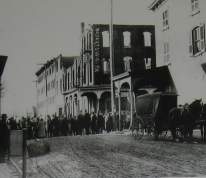
1908 – During a performance of The Scottish Reformation at the Rhoads Opera House in Boyertown, Pennsylvania, a kerosene lamp being used for stage lighting was knocked over, starting a fire on the stage.
Two fire escapes were available but were only accessible through latched windows whose sills were located 3.5 feet above the floor. Of the approximately 400 men, women, and children either in attendance or associated with the performance of the play, 171 perished in various ways as they tried to escape the conflagration.
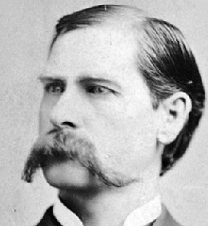
1929 – Wyatt Earp, Deputy Town Marshal in Tombstone, Arizona, who took part in the Gunfight at The O.K. Corral, died of prostate cancer at the age of 80.
Earp was much more than just a figure in that famous gunfight. He was at different times in his life a constable, city policeman, county sheriff, teamster, buffalo hunter, saloon keeper, gambler, brothel owner, pimp, miner, and a boxing referee.
1930 – The Mickey Mouse comic strip debuted. The self-titled newspaper strip, drawn primarily by Floyd Gottfredson, ran for 45 years.

1941 – James Joyce, considered to be one of the most influential writers in the modernist avant-garde of the early 20th century (Ulysses, Finnegan’s Wake, A Portrait Of The Artist As A Young Man) died following surgery for a perforated ulcer. He was 58.
1953 – An article appeared in Pravda accusing some of the most prestigious and prominent doctors, mostly Jews, in the Soviet Union of taking part in a plot to poison members of the top Soviet political and military leadership.
This was later accompanied by publications of anti-Semitic character in the media, which talked about the threats of Zionism and condemned people with Jewish names. Many doctors, officials and others, both Jews and non-Jews, were promptly dismissed from their jobs and arrested.
After Joseph Stalin’s death on March 5, 1953, the new Soviet leadership quickly distanced itself from the investigation into the plot. The charges were dismissed and the doctors exonerated in a March 31 decree. Chief MGB investigator (and Deputy Minister of State Security) M.D. Ryumin was blamed for making up the plot and was arrested and later executed.
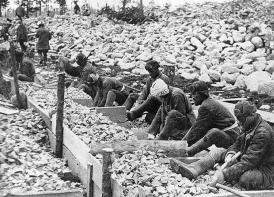
1960 – The Gulag system of forced labor camps in the Soviet Union was officially abolished.
Most Gulag inmates were not political prisoners, although significant numbers of political prisoners could be found in the camps at any one time. Petty crimes and jokes about the Soviet government and officials were punishable by imprisonment. About half of political prisoners in the Gulag camps were imprisoned without trial.
Unlike the concentration camp system of Nazi Germany, the Gulag system did not have death camps, in the sense of “conscious mass death-inducing camps”. Rather, Gulag camps could be described as “locations which had different degrees of death inducement at different times”. But the Gulag consisted of many more camps with many more prisoners over many more years than the Nazi concentration camp system did.
Aleksandr Isayevich Solzhenitsyn’s The Gulag Archipelago – in which he likened the scattered camps to “a chain of islands” and as an eyewitness described the Gulag as a system where people were worked to death – was not the first literary work about labor camps. His previous book on the subject, One Day In The Life If Ivan Denisovich about a typical day of the Gulag inmate, was originally published in the most prestigious Soviet monthly, New World, in November 1962, but was soon banned and withdrawn from all libraries. It was the first work to demonstrate the Gulag as an instrument of governmental repression against its own citizens on a massive scale.

1962 – Ernie Kovacs, a comedian who hosted his own television shows during the 1950s and influenced such TV hosts as Johnny Carson and David Letterman, died at the age of 42 after crashing his Chevrolet Corvair into a telephone pole in Los Angeles, while driving in a rainstorm. Kovacs, who often appeared on camera with his trademark cigar, was found by police with an unlit cigar, leading to speculation that he had been reaching for the cigar and lost control of his vehicle.
1964 – Karol Wojtyla, the future Pope John Paul II, was appointed Archbishop of Kraków, Poland by Pope Paul VI.
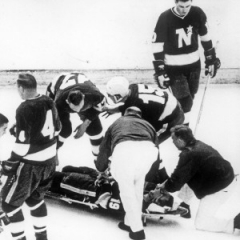
1968 – Minnesota North Stars center Bill Masterton suffered a severe internal brain injury during the first period of Minnesota’s game against the Oakland Seals. He was carrying the puck up the ice at full speed, passing it off as two Seals’ defenders, Larry Cahan and Ron Harris, converged on him. Masterton was knocked backward in the resulting collision and landed on his head. Like most players of his era, he wasn’t wearing a helmet. Masterton died two days later, becoming the only player in NHL history to die as a direct result of injuries suffered during a game.
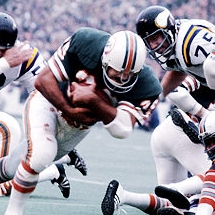
1974 – The Miami Dolphins defeated the Minnesota Vikings 24- 7 in Super Bowl VIII. Dolphins’ running back Larry Csonka (145 yards, 2 touchdowns) was named the game’s MVP.
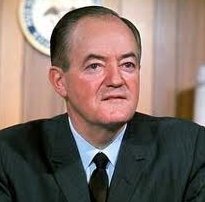
1978 – Hubert Humphrey, U.S. Senator, 38th Vice President of the United States (under Lyndon Johnson), and the Democratic Party’s candidate in the 1968 presidential election, died of bladder cancer at the age of 66.
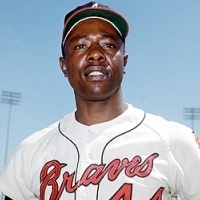
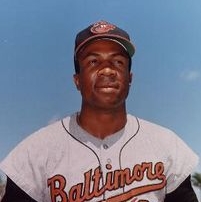
1982 – Hank Aaron and Frank Robinson were elected to the baseball Hall of Fame by the Baseball Writers’ Association of America.
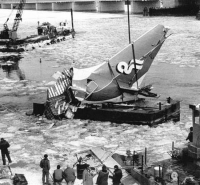
1982 – Air Florida Flight 90 attempted to take off from Washington’s National Airport in one of the worst blizzards in history. Ice had built up on the wings of the jetliner as it waited its turn to take off, preventing it from gaining altitude. After crashing into the 14th Street Bridge, the plane fell into the Potomac River. 74 of the 79 people on the aircraft were killed in the accident. Four people on the bridge were killed.
1988 – In a 5-3 decision, the U.S. Supreme Court ruled that school administrators could exercise prior restraint of school-sponsored expression, such as newspapers and assembly speeches.

1989 – New York City subway gunman Bernhard H. Goetz was sentenced to one year in prison for possessing an unlicensed gun that he used to shoot four youths he said were about to rob him on a New York City subway in 1984. Goetz, dubbed the “Subway Vigilante” by New York City’s media, served eight months.
1990 – Douglas Wilder of Virginia became the nation’s first elected black governor as he took the oath of office in Richmond.
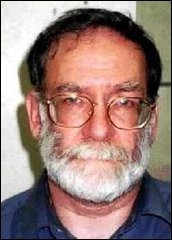
2004 – Harold Shipman, a former British physician who is believed to have killed more than 200 people, died after hanging himself in his Wakefield Prison cell in West Yorkshire, UK. Shipman had been jailed for life in January 2000 for murdering 15 patients.
The murders took place between 1975 and 1998 with the victims dying from lethal injections administered by Shipman. His oldest victim was a 93-year-old woman and the youngest a 41-year-old man.
Janet Smith, who ran the ensuing Shipman inquiry, reported in 2002 that she believed that over a period of 23 years he had actually killed 215 patients and there was a “real suspicion” that he had killed still another 45.
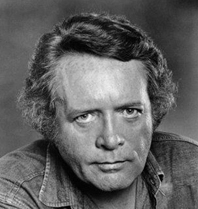
2009 – Actor Patrick McGoohan (Danger Man {renamed Secret Agent when exported to the U.S.}, The Prisoner, Ice Station Zebra, Scanners, Braveheart, and appeared in four Columbo episodes, twice winning an Emmy) died after a short (unnamed) illness. He was 80.
Compiled by Ray Lemire ©2015 RayLemire.com. All Rights Reserved.
You may not, under any circumstances, reproduce, record, publish, republish, post, transmit, publicly display, publicly exhibit or distribute any articles or photographs on RayLemire.com without obtaining the express written consent of the Operator.